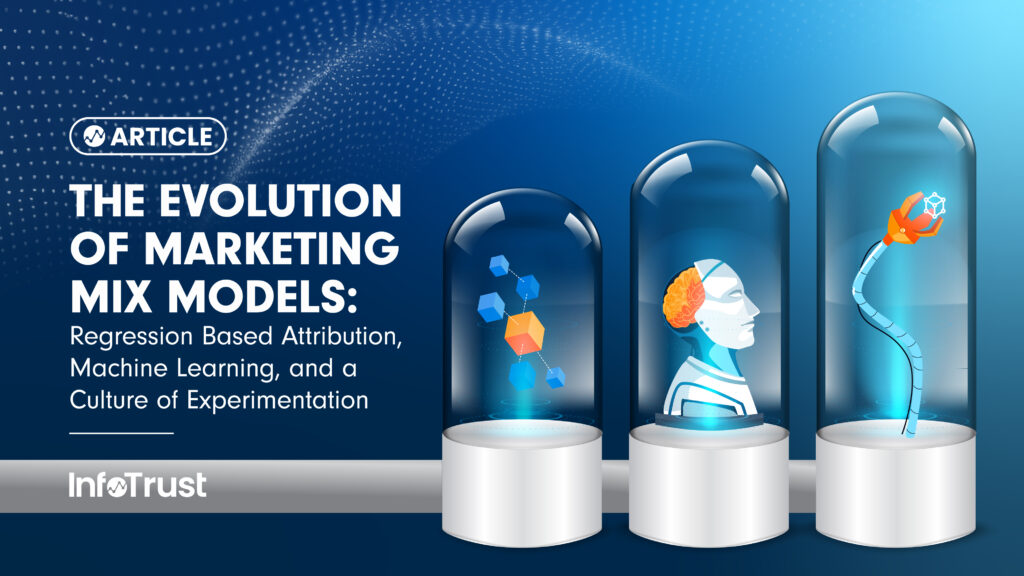In the current marketing landscape, demonstrating the effectiveness of marketing initiatives poses significant challenges for professionals across the field. The Fall 2023 CMO Survey reveals that three in five Chief Marketing Officers (CMOs) consider proving the impact of marketing efforts on financial outcomes to be a top concern. For senior marketers, the ability to illustrate how their initiatives contribute to business value is increasingly essential, particularly as scrutiny over budget allocation intensifies.
Data-driven techniques, such as Marketing Mix Models (MMMs), offer a valuable approach for marketers looking to optimize their campaign investments across various initiatives. By analyzing the performance of different marketing channels and tactics, MMMs enable businesses to make informed decisions that enhance return on investment and effectively allocate resources. These models facilitate a comprehensive understanding of how diverse marketing efforts interact and contribute to overall performance.
While MMMs have a long-standing presence in the field, their relevance continues to endure due to the insights they provide and the strategic direction they offer. Moreover, the growth of digital marketing and the accessibility of advanced modeling techniques have introduced new opportunities for enhancing the effectiveness of MMMs. As we delve into the evolution of these models, we will explore how recent advancements are enabling marketers to derive even greater value and improve their ability to demonstrate the impact of their initiatives on overall business outcomes.
What Are Marketing Mix Models (MMMs)?
MMMs are analytical frameworks designed to help businesses assess the effectiveness of their marketing strategies by quantifying the impact of various marketing initiatives on overall performance. The primary goal of MMMs is to provide insights that guide marketers in optimizing their investment across multiple channels, ensuring that resources are allocated to the most effective activities. To achieve this, MMMs typically utilize a wide array of data, including reach and cost metrics across all marketing channels—such as digital advertising, television, print, and social media. Additionally, they may incorporate other crucial considerations from the traditional marketing mix, often referred to as the “4 Ps” (Product, Price, Place, Promotion), which can also influence the outcomes of marketing efforts. Within an organization, MMMs are often run on a quarterly basis to capture up-to-date information and trends, providing channel-level insights that inform high-level strategic decisions regarding campaign investments and resource allocation. By systematically analyzing the relationships between marketing activities and business performance, MMMs serve as a foundational tool for data-driven decision-making in marketing.
From Marketing Mix Models to Regression-Based Attribution
The use of MMMs has been significantly shaped by the rapid growth of digital marketing and the vast amounts of data it generates. Unlike traditional marketing channels, digital platforms offer a wealth of data on consumer behavior and engagement, enabling marketers to collect and analyze information on a scale previously unattainable. This influx of data enhances the clarity and precision of marketing analyses and allows marketers to develop more informed strategies and more quickly respond to market shifts and audience trends.
In response to the increased complexity of digital marketing, regression-based attribution (RBA) has emerged as an adaptation of MMMs specifically tailored for the digital landscape. RBA distinguishes itself by integrating more granular inputs and being run with greater frequency than traditional MMMs. This allows organizations to produce timely insights that can significantly influence ongoing marketing strategies. By providing tactic-level insights, RBA enhances a company’s understanding of how various marketing campaigns contribute to overall performance and helps optimize resource allocation.
One of the most significant benefits of RBA is not merely its ability to deliver attribution insights; its granular approach also empowers marketers to identify promising hypotheses for further testing. By highlighting which tactics are driving performance and which may require adjustments, RBA enables marketers to prioritize experiments that can lead to impactful changes in strategy. This iterative process fosters a culture of data-driven experimentation, allowing organizations to adapt quickly to evolving conditions and continuously refine their marketing efforts. As a result, the evolution towards RBA represents a shift towards more responsive and effective marketing strategies in an increasingly digital world.
The Accessibility of Advanced Modeling Techniques and Machine Learning
Another significant factor contributing to the evolution of MMMs is the increased accessibility of advanced modeling techniques and machine learning technologies. In traditional MMMs, Bayesian regression techniques have been instrumental in allowing marketers to calibrate their models with data from multiple sources, including insights gained from previously run experiments. This approach enables a more nuanced understanding of marketing effectiveness by integrating historical performance data and aligning it with current initiatives.
For RBA models, the integration of machine learning takes these capabilities even further, enabling marketers to model more complex relationships within the data. Machine learning algorithms can analyze vast datasets to uncover intricate patterns and interactions that might be overlooked in simpler models. This sophisticated analysis allows for more effective scenario planning, giving marketers the tools to predict outcomes under various conditions and campaign strategies.
By leveraging these advanced techniques, marketers can gain a clearer and more sophisticated understanding of which tactics offer the greatest revenue potential. This insight enables them to prioritize testing and experimentation on those strategies likely to yield the highest returns. The combination of greater modeling complexity and actionable insights ultimately empowers marketers to make strategic decisions that drive better outcomes, further solidifying the value of MMMs in the modern marketing landscape. As access to these advanced methodologies continues to grow, the opportunities for optimizing marketing efforts and improving performance also increase.
A Holistic Approach to Marketing Optimization
For companies investing significantly in both online and offline marketing, adopting a holistic approach that combines multiple methodologies can yield the most comprehensive insights and strategic advantages. We recommend utilizing all three approaches—traditional MMM, RBA, and campaign testing—to create a robust framework for understanding and optimizing marketing performance.
First, MMM serves as an essential tool for high-level strategic guidance across the entire portfolio of campaigns. By integrating a wide range of inputs from various marketing channels, MMM provides a broad perspective on overall marketing effectiveness and resource allocation. This high-level output is valuable for making informed decisions about long-term strategy and budget distribution.
Alongside MMM, RBA offers more granular tactical insights, helping marketers generate hypotheses about which specific strategies and tactics to test. This approach allows organizations to identify promising areas for experimentation, ensuring that tactical adjustments are data-informed and strategically aligned with broader goals.
Finally, implementing rigorous campaign testing is crucial for proving causality and demonstrating the true effects of marketing initiatives on the bottom line. While MMM and RBA can provide powerful insights, controlled experiments enable marketers to isolate the impact of specific campaigns or tactics, thereby validating their effectiveness in real-world scenarios and providing the evidence that CMOs seek to prove that their initiatives are delivering business value.
By combining these three methodologies, companies can create a comprehensive marketing strategy that not only guides high-level decisions but also allows for agile testing and refinement. This holistic approach ensures that marketers are well-equipped to navigate the complexities of modern marketing and maximize the value of their investments across all channels.
What the Evolution of MMMs Means for Marketers Today
MMMs have long been recognized as invaluable tools for marketers seeking to understand the effectiveness of their campaigns and optimize their investments. In recent years, these models have evolved significantly, particularly with the rise of digital marketing and advancements in machine learning. This evolution has enhanced their utility, allowing marketers to draw deeper insights and make more informed decisions about their strategies.
Crucially, when MMMs are integrated into a holistic approach that includes regression-based attribution and rigorous campaign testing, they become even more powerful. This comprehensive framework not only facilitates better tactical and strategic decision-making but also provides the robust evidence that CMOs need to demonstrate the impact of their initiatives on the company’s bottom line. By leveraging the strengths of each methodology, marketers can confidently showcase the value of their efforts, ensuring that marketing investments drive real business results and support long-term organizational success. As the landscape continues to evolve, embracing these advanced techniques will be essential for marketers aiming to navigate the complexities of modern marketing effectively.
Unlock the power of your data to enhance marketing performance and drive growth. Our experts are ready to answer your questions, uncover valuable insights, and maximize results. Let’s talk—reach out now!


